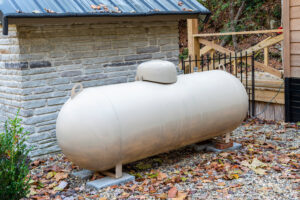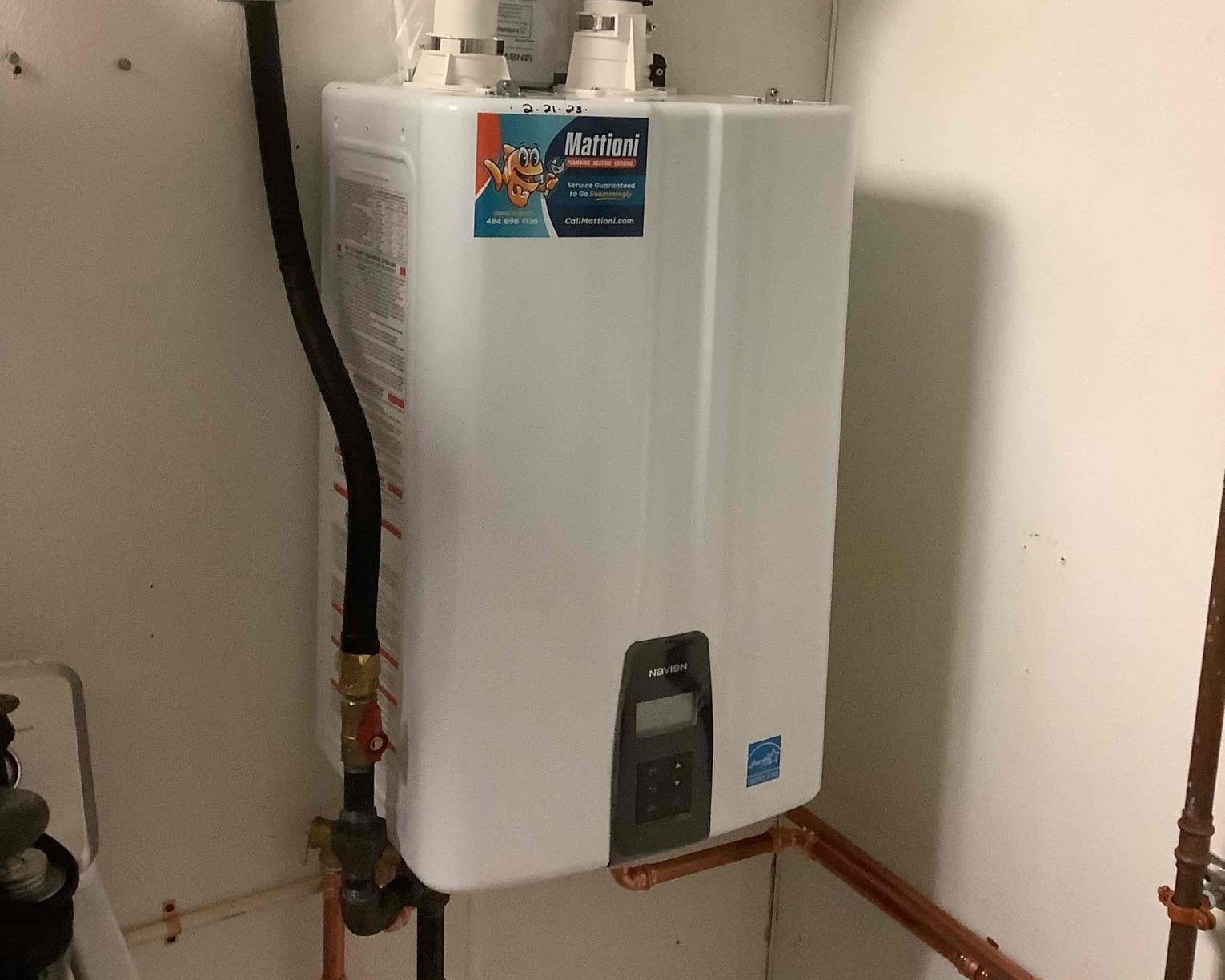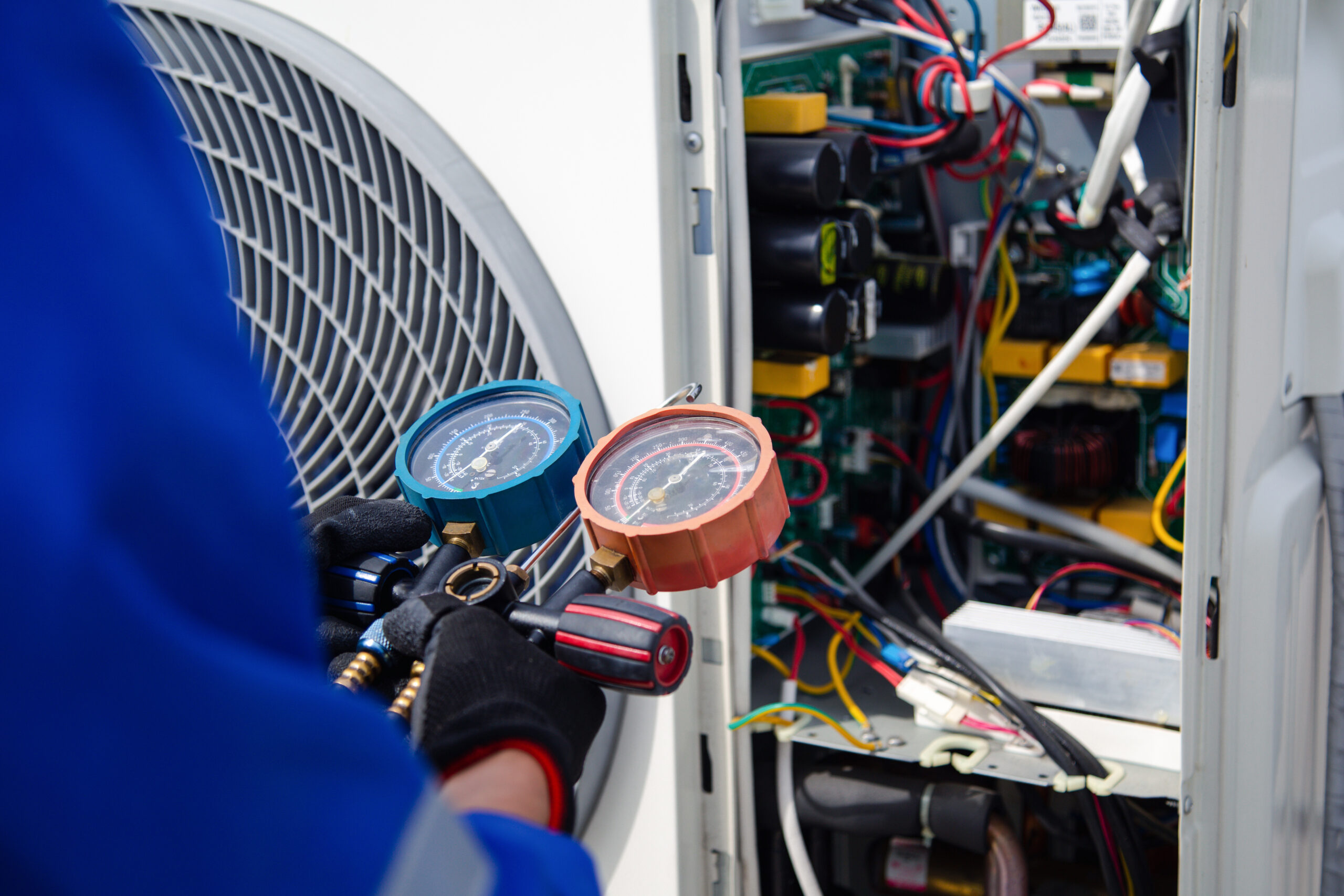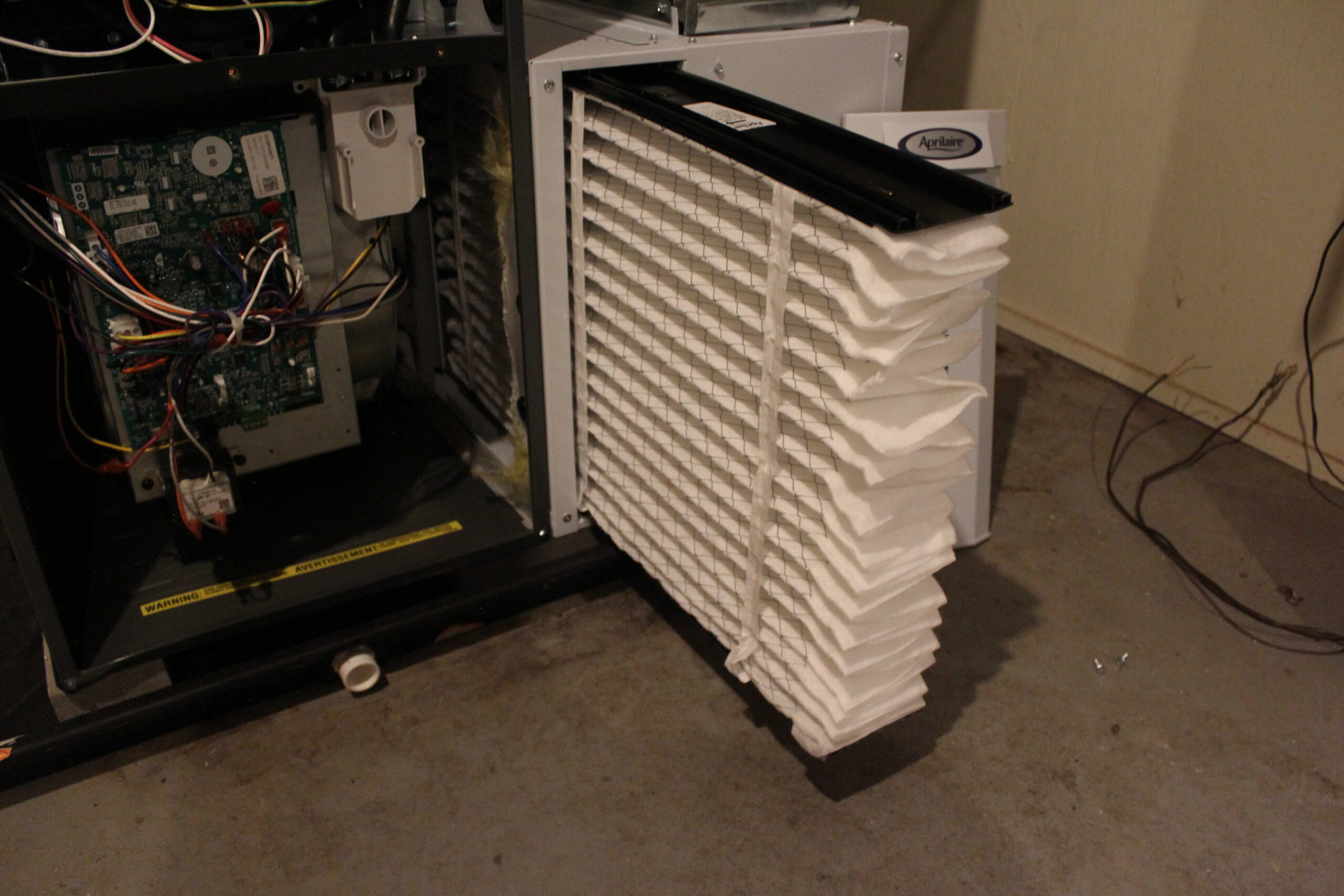|
Getting your Trinity Audio player ready...
|
When it comes to keeping your home warm during the coldest parts of the year, choosing the right heating system can make a big difference. If you’re dealing with inconsistent comfort, rising energy bills, or inefficiencies then you know exactly what we mean.
Two of the most popular options for homeowners (especially those without access to natural gas) are oil and propane boilers, and each has its own set of advantages and disadvantages.
At Mattioni, we’ve guided thousands of homeowners in selecting the right heating system for their home’s unique needs, so we know just how significant of an investment your boiler is.
When it comes to deciding between an oil and propane boiler, it comes down to a handful of considerations: energy efficiency, maintenance requirements, environmental impact, and the cost of fuel, all while keeping your immediate budget in mind.
Taking some time now to learn about how different heating systems line up with each of these considerations will ensure that you select a system you can count on for years to come.
By the end of this article, you’ll have the knowledge to choose a boiler that suits your home in terms of efficiency, comfort, and cost-effectiveness. Let’s start by looking at the functional similarities and differences between these systems.
The Key Similarities & Differences Between Oil & Propane Boilers
Both types of boilers rely on a fuel delivery service to bring either the oil or propane to your home’s storage tank. Oil storage tanks are typically placed in your basement or outdoors, while propane storage tanks are usually buried underground.
- Oil Boilers: Oil is pumped from the storage tank to the burner, where it’s atomized into a fine mist and mixed with air within the system.
- Propane Boilers: Propane is vaporized and fed into the boiler’s burner, where it’s ignited to produce heat that’s distributed to the rooms in your house.
Both types of boilers are compatible with baseboard heaters, radiators, and underfloor heating, giving you all heat distribution options regardless of your fuel type.
Oil boilers are typically the most popular in rural areas of colder climates, where the availability or other heating options (like natural gas) may be limited. Propane boilers are most common among homeowners who also don’t have access to natural gas, and are looking for a cleaner alternative to oil.
While there are some similarities between these systems, each also has some distinct pros and cons.
Oil Boiler Pros: Why They Excel in Cold Climates
Higher Energy Output
One of the biggest calling cards of oil boilers is their ability to burn hotter than propane and give off a higher heat intensity. This increased energy output makes oil boilers particularly effective in colder regions, where maintaining a warm and comfortable indoor temperature requires more robust heating.
Oil boilers are among the best options to keep your home comfortable through even the harshest winters.
Longer Equipment Lifespan
Another top trait of oil boilers is their durability and longevity. Their sturdy construction combined with the fact that, with proper maintenance, they experience less wear-and-tear means they can easily last over 20 years.
They offer long-term reliability and value for homeowners who understand the importance of regular maintenance.
Independence from Utility Grids
Oil boilers are independent of public utility pipelines (such as a natural gas pipeline) since they rely on stored fuel. This freedom means that they’re a viable option in any home, regardless of your proximity to a public access connection.
While you’ll need to prioritize a fuel delivery early in the heating season, you’ll have a reliable heating source regardless of utility service availability or potential disruptions.

Oil Boiler Cons: Unpredictable Prices
Higher and More Volatile Fuel Costs
The cost of heating oil is not only higher than propane, it’s also much more volatile as global market conditions are constantly raising and lowering prices.
Significant fluctuations in the cost of filing your oil storage tank can cause unpredictable financial strains and stress, particularly during periods of high demand or supply disruption.
Storage and Maintenance Requirements
Oil boilers require an on-site storage tank that can be hard to hide. They usually wind up in your basement or outside next to your house, which can be visually unappealing.
Oil-fueled boilers also demand a routine maintenance schedule to prevent leaks and contaminations that will occur without cleanings and tune-ups. While every heating system depends on maintenance to support efficiency and longevity, oil systems are particularly subject to issues if neglected.
Environmental Impact
The byproducts of burning oil contain higher levels of carbon emissions responsible for damaging the environment, compared to propane.
Homeowners who are conscious of their carbon footprint and its impact on the climate may find this to be a significant setback.
Inconvenience of Delivery
Another drawback of relying on oil is the need to schedule regular fuel deliveries by truck. This means having some foresight to schedule a delivery in advance is needed, and there’s always the risk of running out of fuel if deliveries are delayed.
This dependency on timely deliveries can be inconvenient, especially during severe weather.

Propane Boiler Pros: Affordability of Operation
Higher Energy Efficiency & Lower Operating Costs
One of the standout benefits of propane boilers (when compared to oil) is their efficiency. Propane furnaces typically have higher Annual Fuel Utilization Efficiency (AFUE) ratings than their oil counterparts, meaning that more of the fuel is converted to heat, with less energy wasted.
This leads to lower overall operating costs through fewer fuel deliveries and reduced bills when they happen.
Another financial consideration to make is that the cost of maintaining a propane boiler is likely to be lower than that of an oil boiler.
Cleaner Burning
Propane is a much cleaner fuel than oil, making it the more environmentally friendly option. Propane heating systems not only produce fewer carbon emissions, they also leave far less soot behind, reducing the frequency of deep cleanings needed for your boiler.
Convenience & Versatility in Household Appliances
One advantage unique to propane is its versatility to power a variety of home appliances beyond just the boiler. With proper installation considerations, propane can power things like stoves, water heaters and generators, adding convenience and value, especially for homes without access to natural gas.
By using propane for multiple applications, you’ll streamline your fuel needs and potentially reduce overall energy costs.
Propane Boiler Cons: Lower Heating Output Compared to Oil
Lower Energy Density Compared to Oil
While it’s the cleaner and more efficient option, one of the practical disadvantages of propane is that it has a lower energy density than oil. It’ll still deliver high-quality heat and keep your home warm, so don’t worry about it too much. But to many homeowners, it falls short of the level of coziness created by an oil-based system.
In our experience, the only people who notice a difference are those switching directly from oil to propane.
Prices Can be Volatile During the Winter
While oil prices are more volatile from month to month, the price of propane usually experiences a spike each year between December and February, when demand is at its highest. This has the potential of adding a temporary strain on household budgets, at the time when you need fuel the most.
Our advice is to stock up on any fuel before winter for the greatest likelihood of avoiding higher costs.
Dependence on Fuel Deliveries
Like oil, propane furnaces depend on regular deliveries, adding the potential for some situational problems. For example, if your propane tank runs low during a particularly cold spell or blizzard, you could be left without heat until the next delivery arrives.
Be sure to take a proactive approach to scheduling fuel deliveries, to prevent a heating emergency from occurring.

Considerations When Choosing Between Oil and Propane Boilers
Location and Availability
The availability of propane or oil in your region can sometimes be the most significant factor in your decision. If you live in an area where one fuel is readily available and less expensive than the other, this will likely influence your choice.
Be sure to research energy companies in your area before installing a boiler with a new fuel source.
Cost of Installation vs. Long-Term Savings
Propane boilers can be more expensive upfront, but they almost always offer long-term savings compared to oil, through lower operating costs and higher efficiency.
On the other hand, oil furnaces typically come at a lower installation price but will cost more to operate and maintain over time.
It’s important to weigh the short-term and long-term costs and how they’ll impact your household budget before making a purchase decision.
Environmental Impact
Environmentally conscious homeowners will certainly want to consider how both oil and propane boilers affect our climate.
Propane burns cleaner than oil and produces fewer carbon emissions and pollutants. So, if your goal is to reduce your carbon footprint, then propane is the better option. Additionally, propane is a more sustainable fuel choice than oil, which is a finite resource.
Lifestyle Preferences
Before you make a final decision, consider how both options fit in with your lifestyle and your expectations of convenience. Both oil and propane depend on fuel deliveries, however, if you prefer a heating system that requires less stringent maintenance, then opting for propane is likely for you.
By the same token, if you prefer a thoroughly cozy home atmosphere and don’t mind higher utility costs, then an oil boiler is for you.

Oil or Propane: Making the Right Decision for Your Home
This decision will ultimately depend on your personal situation and should depend on factors like the availability of each fuel in your area, your heating preferences, and your environmental priorities. It should also balance your short-term and long-term budgeting expectations.
It’s important to consult with an HVAC professional to review the benefits and drawbacks of oil and propane so that you can carefully consider how your next system will impact your home in the years to come.
With over 75 years in business, the Mattioni team of HVAC professionals has helped thousands of homeowners navigate their boiler installation process, and we’re here to help you too.
For answers to all your home heating questions, reach out to our friendly staff at (610) 400-8510 or schedule a consultation online today. Don’t wait until it’s too late to address your boiler replacement – take action to ensure your home stays comfortable all winter long.




